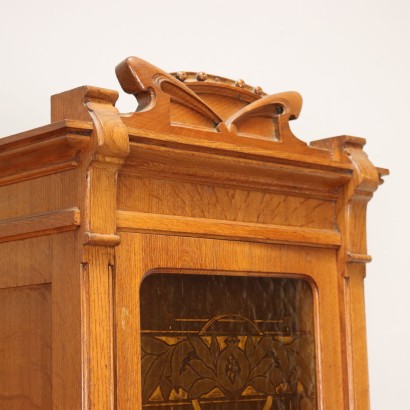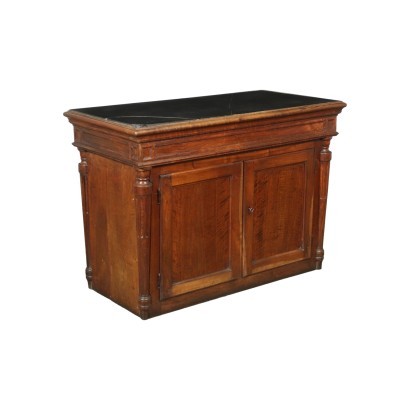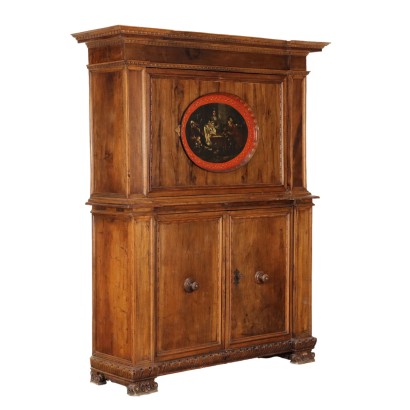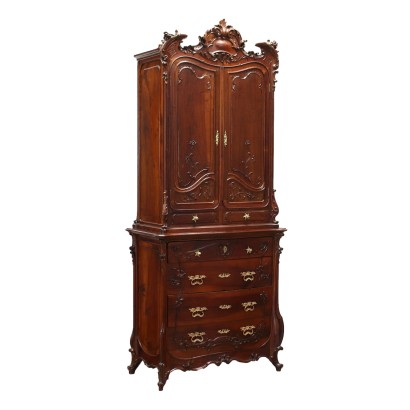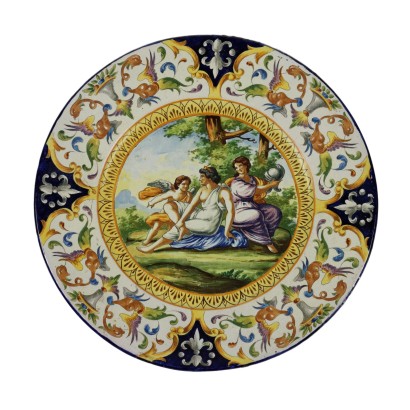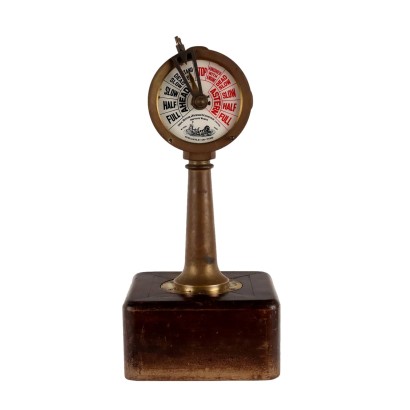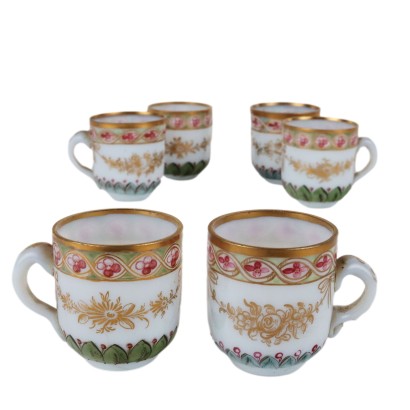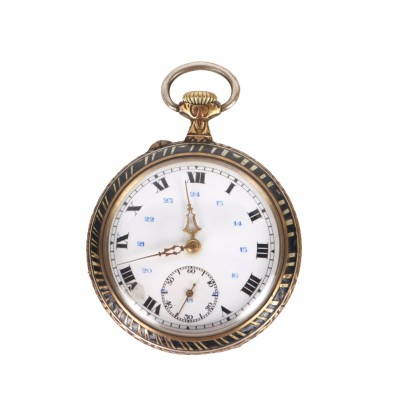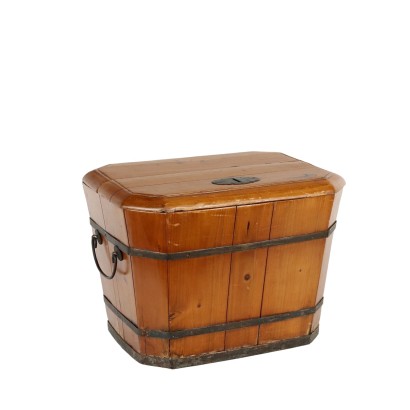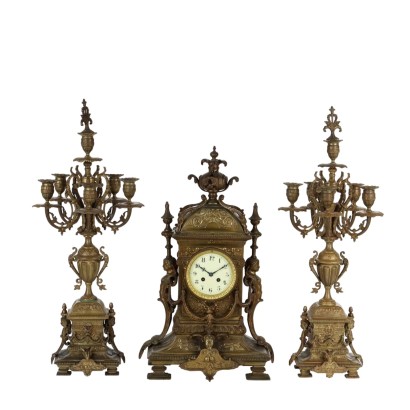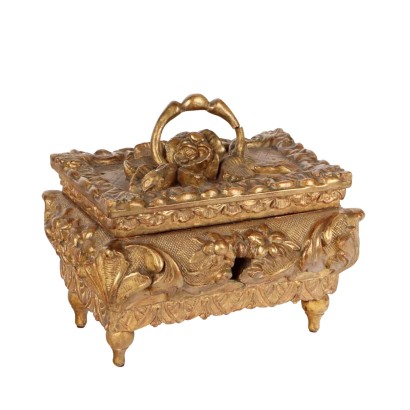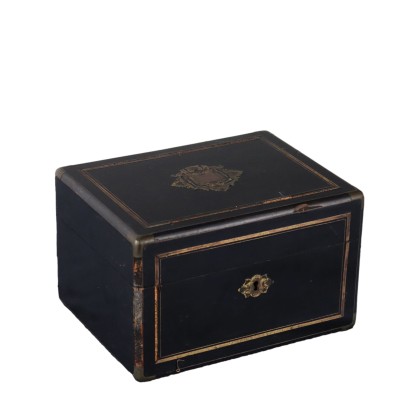Cupboard Art Nouveau Oak Italy XIX-XX Century - Italy, Late XIX - Early XX Century
Features
Italy, Late XIX - Early XX Century
Style: Art Nouveau (1890-1920)
Age: 19th Century / 1801 - 1900 , 20th Century / 1901 - 2000
Origin: Italy
Main essence: Sessile Oak
Material: Acid glass
Description
Art Nouveau cupboard in oak with upstand. Stand with pair of acid-etched and gilded display cases, central shelf, back divided into three carved reserves; lower body with four drawers in the upper band and central compartment, with four doors of different sizes decorated with the same whip and floral motif carvings present throughout the piece of furniture.
Product Condition:
Product which due to age and wear may require restoration and re-polishing. We try to present the real state of the furniture as fully as possible with photos. If some details are not clear from the photos, what is reported in the description will prevail.
Dimensions (cm):
Height: 213
Width: 166,5
Depth: 60
Additional Information
Style: Art Nouveau (1890-1920)
Historical stylistic period formed from the end of the 19th century (ca. 1890) after the Umbertino style and continued until the First World War.The current was characterized by the floral influence and the soft and curved lines, typical example are the "whiplashes".
The first signs of this new era came from architects such as Hector Guimard (1867-1942) who created numerous buildings and hotels, but also from people such as Arthur Mackmurdo furniture designer and Arthur Liberty industrialist and London merchant of the late 19th century who began to produce furnishing fabrics with floral motifs with soft and sinuous shapes.
The Universal Exhibition of Paris in 1900 was an important point for the development and affirmation of Liberty in the following decade.
Liberty was called in different ways depending on the nation, universally known as Art-Nouveau and it is thought that Arthur Liberty is the origin of the name given in Italy to this beautiful stylistic movement.
The name Art-Nouveau is thought to derive from a shop located in Paris called Maison de l'Art Nouveau which began to show off furniture with a new and innovative design in its windows.
With the end of the First World War, the naturalistic period of Liberty ended and the Art-Decò style appeared, with more rigid and geometric lines.
Find out more about the Liberty style with our insights:
Art Nouveau: birth and development of a style
Milan Liberty between flowers and colors
Carlo Zen's Liberty
Decorative shapes and elegance in an Liberty living room
FineArt: Aeolus and Cupid, Liberty sculpture by Luca Madrassi
FineArt: Nymph and Faun, Liberty sculpture by Giuseppe Siccardi
The Austrian taste of Baroque




